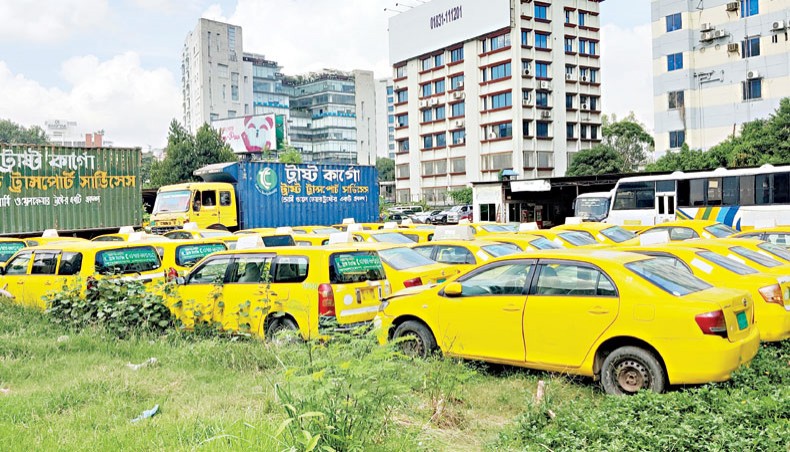
Taxicab service all but disappearing

The taxicab service is on the verge of disappearing from Bangladesh, as the companies providing the service in the country are not interested in continuing it.
One of the two companies providing taxicab services, Toma Construction and Co. Ltd., has stopped providing the service since the beginning of this year.
‘We are not providing taxicab service from January 1, 2023,’ Mohd Ataur Rahman Bhuiyan, chairman of Toma Group, told FP.
Another service provider, the Army Welfare Trust, recently sent a letter to the Bangladesh Road Transport Authority requesting to declare its majority of taxis ‘out of order.’
No new companies have applied for the service, BRTA chairman Nur Mohammad Mazumder told FP on Sunday.
The service will be abolished in 2025 if no new investments come here by the time the extended economic life of the existing registered taxis expires, officials said.
Currently, very few taxicabs are seen on the roads in the capital.
The service was introduced in Bangladesh in 2001.
As per the government document, 18,700 taxicabs can run under the service in Dhaka, Chattogram, and Sylhet, but at present there are only 424 registered cabs.
In April 2014, the Army Welfare Trust and Toma Construction and Co. Ltd. introduced an air-conditioned taxicab service in Dhaka.
As of September 20, 2022, under the Army Welfare Trust, 175 taxicabs had been registered, and Toma Construction and Co. Ltd. had 249 taxicabs registered.
‘We started this taxicab service along with the Army Welfare Trust with high hopes, but could not make the service work due to a lack of cooperation from authorities,’ said Ataur.
He said that in many countries, ridesharing service and taxicab service run simultaneously without affecting each other.
‘In Bangladesh, we could not create the environment for the service, and that is why we would not continue the service,’ he said, claiming that they had struggled since the start of the service.
Toma Group has yet to officially notify the regulator of its decision, according to BRTA chairman Nur Mohammad.
‘If the company does not want to continue the service, they should officially inform us,’ he said.
According to the 2010 Taxicab Service Guidelines, the economic life of taxicabs is 10 years.
In January 2022, the Army Welfare Trust and Toma Construction and Co. Ltd. applied to increase the economic life of their taxicabs from 10 years to 11 years, citing that they were off the streets for the Covid-19 lockdown between 2020 and 2021.
The road, transport, and bridges ministry approved the request.
As per the Army Welfare Trust, its 132 cabs were manufactured in 2011. They were imported in 2014, and they are scheduled to cross the economic life cycle on December 31, 2021.
Following the extension, the cabs’ economic life ended at the end of 2022.
Eighteen Army Welfare Trust cabs were manufactured in 2012, imported in 2014, and would cross the economic life on December 31, 2023, while 25 cabs were manufactured in 2014, imported in 2016, and would cross the economic life on December 31, 2025.
BRTA director [engineering] Sitangshu Shekhar Biswas told New Age that the Army Welfare Trust in the past week sent a letter to the authorities requesting to declare the taxis that ended economic life as out of order.
The trust did not apply for the replacement of these cabs, he added.
Editor & Publisher: S. M. Mesbah Uddin
Published by the Editor from House-45,
Road-3, Section-12, Pallabi, Mirpur
Dhaka-1216, Bangladesh
Call: +01713180024 & 0167 538 3357
News & Commercial Office :
Phone: 096 9612 7234 & 096 1175 5298
e-mail: financialpostbd@gmail.com
HAC & Marketing (Advertisement)
Call: 01616 521 297
e-mail: tdfpad@gmail.com